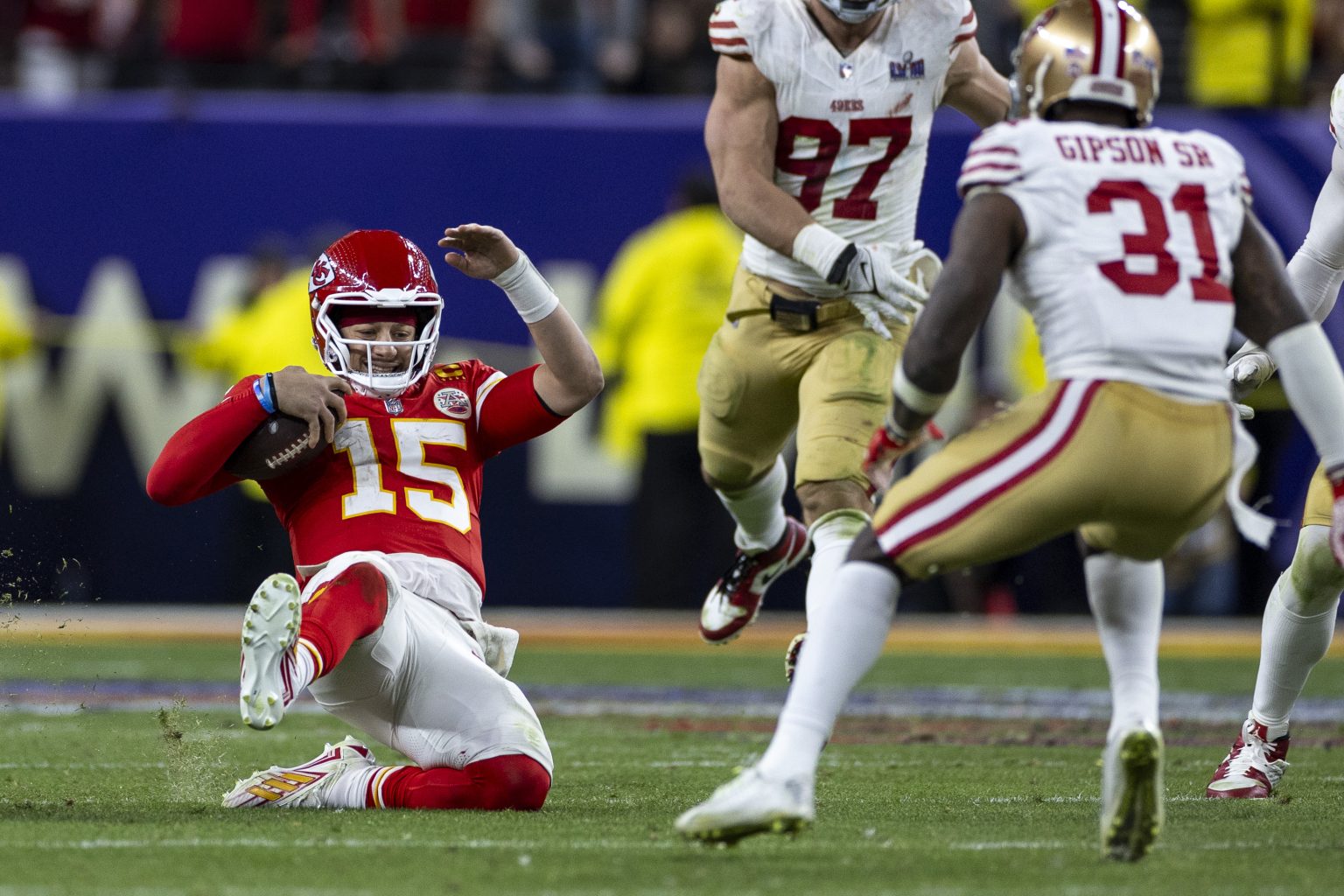The NFL faces a growing dilemma regarding quarterback slides and the exploitation of rules designed to protect them. These rules, intended to safeguard quarterbacks from serious injury, have inadvertently created opportunities for manipulation, sparking controversy and frustration among fans and players alike. The core issue lies in the ambiguity surrounding when a quarterback is considered “down” during a slide, leaving defensive players vulnerable to penalties for seemingly legal hits. This ambiguity has led to accusations of quarterbacks, notably Patrick Mahomes, leveraging the rules to their advantage, drawing penalties against defenders who appear to be making legitimate plays. Recent incidents involving Mahomes and Jacksonville Jaguars quarterback Trevor Lawrence have intensified the debate and underscored the need for clearer regulations and enforcement.
The controversy gained significant traction following a playoff game between the Kansas City Chiefs and the Houston Texans. During this game, Mahomes initiated a slide, prompting two Texans defenders to collide with him. Despite replays suggesting minimal contact initiated by the defenders, a 15-yard penalty was assessed against Houston. This incident fueled existing concerns about the subjectivity and potential for manipulation surrounding quarterback slides. While the resulting penalty did not lead to fines for the Texans players, it further highlighted the inconsistencies and potential for unfair calls in such situations. The ambiguity surrounding these plays has become a talking point throughout the 2024 season, prompting calls for clearer rules and more consistent officiating.
Adding to the complexity of the issue is the increasing mobility of modern quarterbacks. Players like Mahomes, with their ability to extend plays and improvise, present unique challenges for defenses. The line between a legitimate scramble and a deceptive slide becomes increasingly blurred, leaving defenders in precarious positions. Dallas Cowboys pass-rusher Micah Parsons has been a vocal advocate for clarification, arguing that the moment a quarterback initiates a slide or moves towards the sideline, the play should be deemed dead. He contends that the current rules create an exploitable loophole, allowing quarterbacks to manipulate defenders and gain unfair advantages. This, he argues, fundamentally alters the balance of the game, placing defensive players at a disadvantage.
The problem, however, is not solely limited to offensive exploitation. The case of Jacksonville Jaguars quarterback Trevor Lawrence highlights the dangers faced by quarterbacks, even when attempting legitimate slides. In a game against the Houston Texans, Lawrence was subjected to a brutal hit by linebacker Azeez Al-Shaair while sliding. The hit, which involved Al-Shaair lowering his forearm and striking Lawrence’s head, sparked outrage and renewed calls for stricter enforcement of existing rules. While the fast-paced nature of NFL games makes split-second decisions difficult, the Jaguars’ defensive coordinator, Ryan Nielsen, emphasized that there’s no excuse for such dangerous hits on sliding quarterbacks, advocating for improved tackling techniques and a greater emphasis on player safety.
The mounting controversy and high-profile incidents have prompted the NFL’s competition committee to address the issue during the offseason. The proposed solution involves expanding the use of replay assist, allowing officials to review controversial slide plays and ensure more accurate calls. This expansion aims to provide greater clarity and consistency in officiating, reducing the potential for both offensive manipulation and dangerous hits on quarterbacks. The efficacy of this solution, however, remains to be seen. While increased use of replay could lead to more accurate calls, it also raises concerns about further slowing down the game and potentially disrupting its flow. The balance between ensuring player safety, maintaining the integrity of the game, and preserving its pace will be a key consideration for the committee.
The debate over quarterback slides highlights a fundamental tension in the NFL: the need to protect its star players while preserving the competitive balance of the game. The rules designed to safeguard quarterbacks have inadvertently created opportunities for exploitation, leading to frustration and controversy. The incidents involving Mahomes and Lawrence underscore the complexities of the issue and the need for a comprehensive solution. The proposed expansion of replay assist represents a step towards addressing these concerns, but its ultimate success will depend on its implementation and its ability to strike a balance between player safety, accurate officiating, and the pace of the game. The ongoing discussion surrounding quarterback slides reflects the evolving nature of the NFL and the constant need to adapt rules and regulations to ensure fair play and protect the well-being of its athletes.

